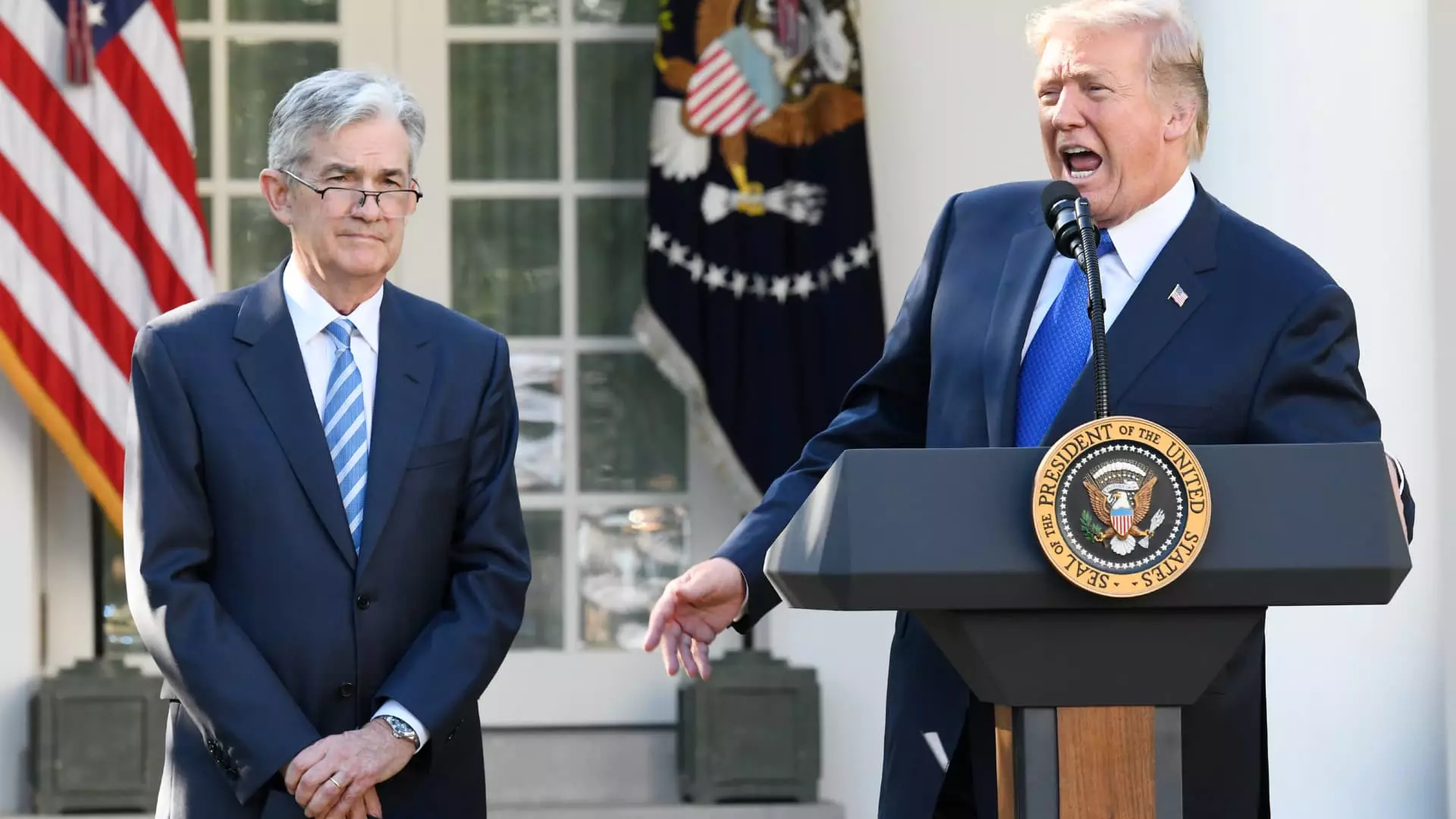In an extraordinary twist of political economics, former President Donald Trump has designated himself as an outspoken advocate for drastic monetary policy changes, pushing for the Federal Reserve to implement a full percentage point cut in interest rates. His latest outburst, delivered via a post on Truth Social, came on the heels of a robust jobs report that might have otherwise indicated stability in the U.S. economy. This convoluted behavior raises important questions about the relationship between presidents and monetary policy and whether such influences can undermine the objective nature of the Federal Reserve.
Trump’s insistence on such a steep rate cut, despite labor market indicators showing promise, signals a fundamental misunderstanding of economic principles. The U.S. economy is not just a tool for political gain; it operates on intricate laws of supply and demand, influenced by consumer behavior, global markets, and yes, interest rates. When a president promotes radical changes solely for short-term political benefit, it can lead to long-term economic instability, sowing confusion among investors and market participants alike. It appears that Trump’s approach to economic policy relies more on whims than on the sober assessments of seasoned economists.
Market Reactions and Investor Sentiment
Despite Trump’s fervent calls for action, financial markets overwhelmingly signal skepticism regarding any imminent rate cuts. The notion that the Federal Reserve would respond to political pressure rather than adhere to its guidelines is both alarming and disheartening. Historically, the Fed has maintained a degree of independence from the executive branch to ensure that monetary decisions reflect economic realities rather than political expediency. In this context, Trump’s appeals can be seen not only as misguided but potentially harmful.
The lack of alignment between Trump’s demands and market expectations points to a robust institutional framework that upholds the integrity of economic policy. Following the better-than-expected jobs report, which highlighted significant job growth and wage increases, traders recalibrated their expectations about future rate cuts, bracing for the Federal Open Market Committee’s next meeting. The decline in projected chances of a rate cut suggests that while Trump calls for radical adjustments, the financial community remains anchored in the belief that sound policymaking should ultimately prevail.
The Inflation Dilemma and Global Comparisons
What makes Trump’s entreaties particularly troubling is his framing of interest rate cuts as necessary tools for economic rejuvenation with scant regard for the risks associated with potential inflation spikes. He often highlights the actions of other central banks, especially the European Central Bank (ECB), which has repeatedly trimmed rates. However, each nation’s economic circumstances are unique and cannot be blindly replicated. Such oversimplification betrays a lack of understanding of the intricate interplay between domestic policies and global economic trends.
Furthermore, comparing the U.S. economy with others like those in Europe can lead to erroneous interpretations about what is genuinely beneficial. The ECB’s recent quarter-point reduction was a response to considerably different economic indicators than those the U.S. currently faces. By failing to appreciate these nuances, Trump risks endorsing reckless economic stewardship that could backfire, increasing inflation at a time when the American economy appears to be managing its recovery reasonably well.
The Consequences of Misguided Economic Policies
Continuing with his aggressive rhetoric, Trump characterized Jerome Powell as an impediment to economic prosperity, even attributing the ongoing strength of the economy to mere happenstance rather than competent governance. This policy of vilification distracts from critical economic dialogues that ought to reflect real challenges, such as income inequality, healthcare costs, and structural unemployment. Painting Powell as a villain for adhering to prudent monetary policy risks destabilizing the careful balances that underpin our economy.
One must seriously question the broader implications of Trump’s statements. By framing financial institutions and leaders in adversarial terms, he sets a dangerous precedent where economic decisions could become enmeshed with political agendas. This blurring of lines not only undermines the Federal Reserve’s credibility but also sows discord among policymakers, creating a brutal tug-of-war between political aspirations and economic realities.
In this politically charged environment, it is essential for all stakeholders—politicians, economists, and the public—to reassert the need for a more collaborative and less combative approach towards monetary policy, oriented clearly toward the well-being of the economy as a whole.


Leave a Reply